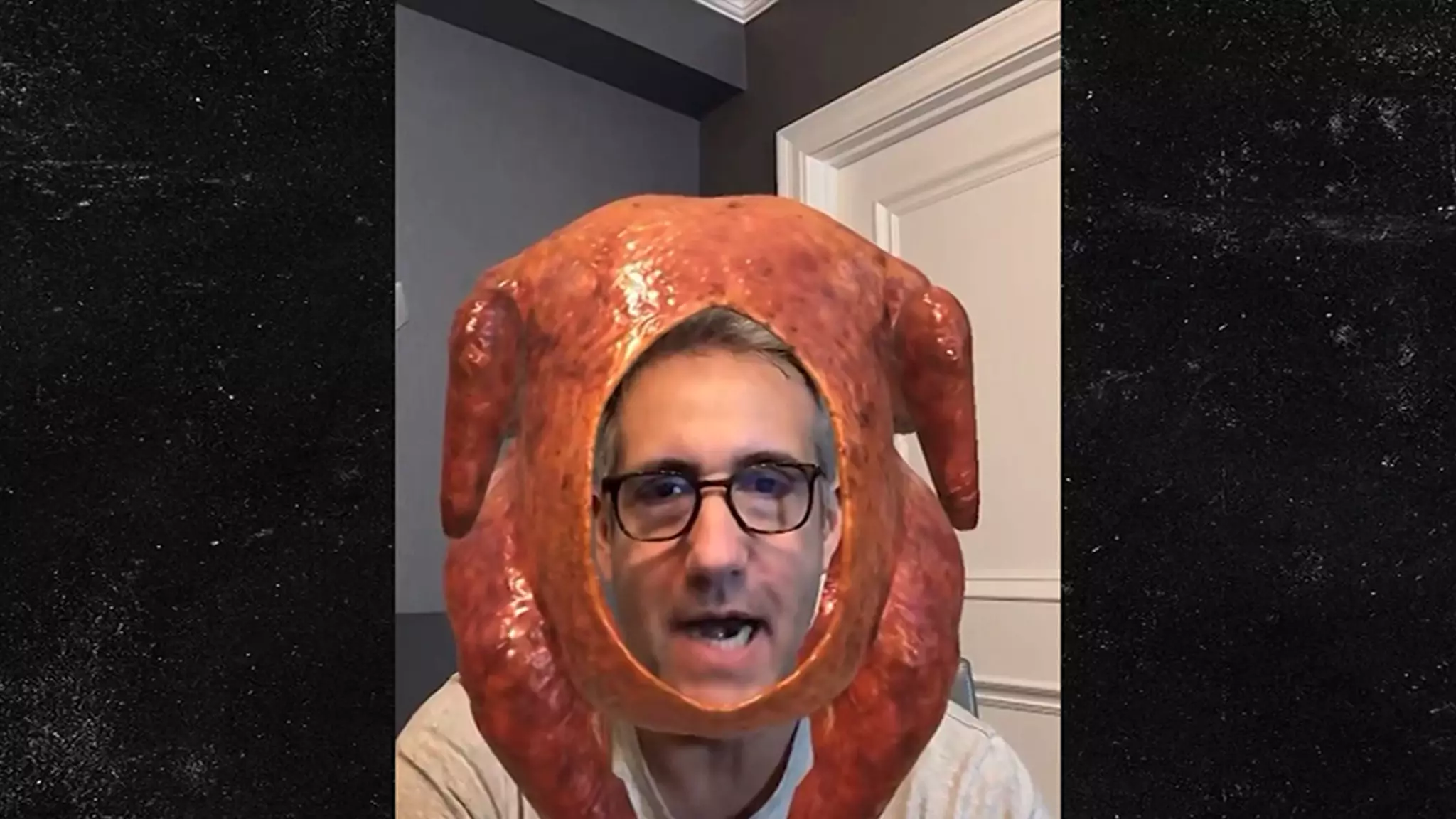Michael Cohen, the former attorney to Donald Trump, finds himself embroiled in social media skirmishes while attempting to assert his presence in America. Known largely for his past affiliations with the Trump administration and his subsequent legal troubles, Cohen’s rhetoric reflects the frustrations of someone caught between personal experiences and public personalizations. Recently, Cohen addressed his so-called “haters,” declaring his intent to stay in the United States, even as he faced vehement, mocking trolls who jokingly urged him to leave the country given his contentious history.
The discourse around Cohen’s decision to remain in the U.S. was visually overshadowed by a peculiar prank enacted by internet users. By affixing animated turkey heads to Cohen’s image in a live broadcast, these trolls not only disrupted his serious message but also encapsulated the often nonsensical nature of social media interactions. The turkey heads served as a metaphor for Cohen’s complex predicament: straddling the fine line between a public persona and a deeply personal narrative. His reaction to the satire was visceral; he expressed indignation at being reduced to a mere caricature, underlining a broader sentiment that many public figures feel when subjected to online ridicule.
Cohen’s myriad legal troubles, including his prison sentence for campaign finance violations, provide a backdrop for understanding his defensive stance. His memoir, “Disloyal,” offers a candid account of his association with Trump, detailing the intricacies of loyalty, betrayal, and the heavy price he paid for his past decisions. The duality of his existence—both as a legal consultant and as a villain in the court of public opinion—highlights the complexity of his current situation. While he claims that his illegal activities were done at Trump’s behest, liabilities remain strictly his own to carry. These personal burdens seem to clash with the viral nature of online culture, where individuals can manipulate perception with a simple tap of a screen.
Cohen’s struggle to reclaim his narrative in a digital landscape filled with trivial distractions is emblematic of the broader challenges faced by many public figures today. The implications of his online exchanges raise questions about the nature of accountability in social media. When users can pay to add an animated filter or make derogatory comments, it complicates the dialogue around personal accountability and public persona. Cohen’s efforts to confront these trolls perhaps inadvertently promote further engagement, leading to a cycle of trolling that stymies any potential for serious discussion.
Ultimately, Michael Cohen’s journey illustrates the tension between maintaining one’s integrity and navigating the complex waters of public perception. His refusal to leave the country—a playful jab met with absurdity—speaks volumes about his desire to actively engage with the American landscape he once thrived in. However, the manner in which he does so may continually flip between earnestness and the theatrical absurdity of modern social interactions. As Cohen continues to define his path forward, he must grapple with the challenges of reclaiming his voice amid the digital cacophony that frequently discredits sincere attempts at dialogue.

